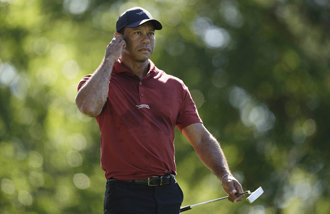[Op-Ed] Golf and Democratization
"Countries with golden arches symbolizing the McDonalds chain will not go to war against each other." This was said by New York Times columnist Milton Friedman. Richard Haass, president of the Council of Foreign Relations in the U.S., introduced the geopolitics of golf in Newsweek magazine last month. Haass said the more familiar with golf a people become, the less anti-American they get and vice versa. Vietnam appears ready to become a friend of the U.S. and leave the pain of the Vietnam War behind. The Ho Chi Minh Trail was a military supply line for Vietnamese troops in the war, but is now a popular golfing route surrounded by luxury courses and resorts.
More golf courses means the expansion of the middle class. This also indicates that a democratic foundation has been laid and that basic safety is assured to that extent in a country. Foreign tourists bring a new wave of change and flurry of ideas. Haass called golf an "expression of economic and political opening." For example, North Korea has just three country clubs but South Korea has 234. So golf symbolizes peace and stability. Even Kashmir, the contentious border area between India and Pakistan, has five golf courses. This suggests that though peace is not tangible there, the region is heading in the right direction.
Golf courses, however, do not necessarily bring about all positive trends. As the number of courses increases, rice paddies have declined in size, while water is running short in the dry season. Many farmers are being forced out of their fields, but few land jobs at country clubs. Many blast golf courses as places by the rich, of the rich, and for the rich since Vietnam remains a socialist country. The vice speaker of the Vietnamese parliament even said, Golf courses for the rich eat into farm fields, cause pollution, and threaten food security, and should be subject to heavy taxes.
If a project to build 140 country clubs is completed as planned in Vietnam, the number of golf courses there will match that of Korea. The main patrons will also be Koreans and Japanese since course fees in Korea and Japan are high. Vietnam seems to be coming closer to democracy than Venezuela, where the president openly criticizes golf, and orders courses shut down. In the wake of yesterdays summit between Korea and Vietnam, the two countries raised their ties to the level for a strategic cooperative partnership. The two nations should expand exchanges in golf, as well as in politics, human resources and culture.
Editorial Writer Kim Sun-deok (yuri@donga.com)







